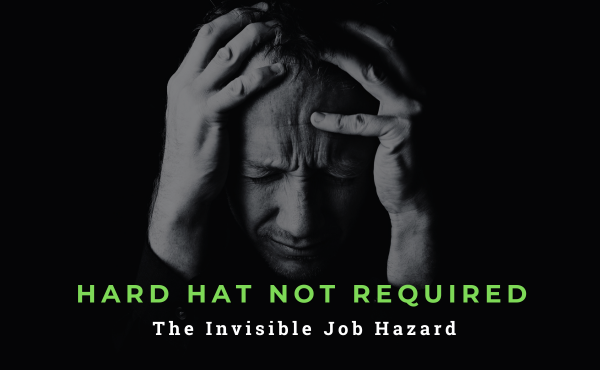Are You Supporting Your Apprentices' Well Being?

Every training director knows that the best apprenticeships go beyond the basics. But what if we told you that there's a dimension often overlooked, one that could elevate your program from good to outstanding? Between learning the tools and techniques, there's another key factor: the well-being of the apprentice. Training centers not only create skilled workers but also cultivate well-rounded individuals. Let's explore how training centers can merge personal well-being with building professional skills:
More Than Just Skills: The Two-Fold Duty of Training Centers
Let's take a look at two apprentices: Tom and Steve. Tom has steadily improved his skills on the tools. But there’s a noticeable drop in performance when he gets stressed or feels down. On the other hand, Steve is naturally skilled but often feels overwhelmed by team dynamics. This is where the importance of well-being comes in. If training centers also focus on helping them learn to balance their mental and emotional states, Tom and Steve can thrive. Helping them learn this balance is a pivotal role of training centers.
Blueprints for Success: Building Better Apprentices
Here's a deeper dive into key strategies that can make a marked difference for your apprentices:
Regular Check-Ins
Periodic checks aren't just about assessing progress in getting the skills and experiences they need. For instance, consider a monthly "What About You Wednesday" where trainers sit down with apprentices check in with apprentices and see what’s going on in their lives. Such conversations can unearth important concerns, like serious challenges in balancing work, studies, and personal life. That provides the opportunity to jump in and provide timely support and guidance before concerns become problems.
Work-Life Balance Workshops
Balance is key for sustained productivity and health. Organizing workshops featuring guest speakers who've mastered balance in the demanding construction world can be enlightening. These sessions can offer practical tips, like how Skyler manages his demanding work schedule to ensure quality time with his young family.
Conflict Resolution and Communication Skills
Building structures is one thing; building relationships is another. By hosting role-playing sessions, apprentices can practice navigating workplace conflicts. Imagine a scenario where two apprentices, Jose and Aisha, disagree on hhow to handle an important task. This gives them a safe space to practice resolving issues while fostering better communication skills.
Mental Health Resources
Providing access to professional mental health resources can be a game-changer. Say an apprentice like Sam is grappling with serious personal issues; making sure that he has an easy way to get the help he needs can provide immediate relief and guidance, ensuring his personal struggles don't block his path to professional success.
Wrapping It Up
In training apprentices, it's not just about teaching the trade. It's equally about teaching people to live their best lives within the trade. By focusing on their skills and well-being, we're crafting a stronger, more resilient future for the construction industry.








Accurate Screening of Apprentices in Four Steps
A Realistic Job Preview
Start with a brief online video that explains a career in union construction. The video is helping people have the right understanding of :
- What it means to have a career in construction
- What to expect – an honest look at the good and the bad
- What the union expects of t
- What to expect – an honest look at the good and the bad
- What the union expects of them
Candidates Completes APS Success Profile
A 60-min online based test. The assessment evaluates candidates’ aptitude, personality, and cognitive capabilities related to a career in construction.
Your Program Receives Assessment Results Online
Assessment results are returned with easy-to-use “traffic light” indicators (green, yellow, and red) to group applicants by assessment score and mechanical reasoning capability.
Interviews are Held with Behavior Based Questions
Interview is based on a technique that research has shown to be 4x more effective at predicting success than traditional interviews.



